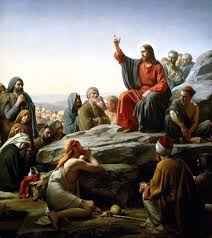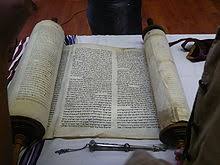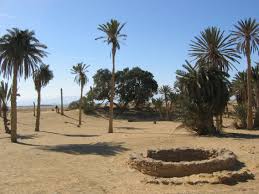Pray for the Peace of Jerusalem Greetings Why TLDC? Encourage Torah Living Y'shua Style and preparing us for the tough times ahead through pertinent and inciteful discussions on the issues and topics affecting today's Believer in Y'shua Mashiyach Useful Information...
The Critical Role Faith Play in the Prayer Life of a Messianic
The Critical Role Faith Play in the Prayer Life of a Messianic
The prayer lives of many members in the Hebrew Roots-Messianic Community are ineffective and have little to no associated power. In this installment of TMTO, we look at the role faith places in a Netzari’s prayer life and how faith can transform our prayers, when properly aligned with God’s Word and His Holy Spirit, into a powerful and effective tool for the Body of Messiah.
The 3-Legs of Prayer–Holy Spirit–Constancy–Faith
1. It’s through this medium of prayer that incorporates the Holy Spirit, keeps us constantly before the Father and exercises our Trust that the Almighty will hear us when we call that we are able to work and function and produce for the Kingdom of God.
- Praying at all times in the Spirit, with all prayer and supplication. To that end keep alert with all perseverance, making supplication for all the saints, (Eph 6:18 ESV)
- Our spirit working in concert with God’s Spirit to direct our prayers.
- Prayer is supposed to be spiritual in nature.
2. Constancy in Prayer
- Pray without ceasing (1Th 5:17 ESV)
- Untiring; incessant prayers that seek to ultimately grab Father’s attention and move Him to act on our behalf.
3. Faith–the topic of our discussion for this post
Thus it’s the medium by which we not only communicate with our Creator, but to wage war in the heavenlies; to intercede on behalf of others; the means by which receive and implement the spiritual tools and resources we need to live holy and righteous lives; means to worship and praise Father; to walk with, grow and become just like our Daddy and older brother.
Faith As Define By Scripture
Now faith is the substance of things hoped for, the evidence of things not seen. (Heb 11:1 KJV)
1.Faith is the confidence that what we hope for will actually happen; it gives us assurance about things we cannot see. (Heb 11:1 NLT)
2.But we must recognize that faith is more than a cognitive understanding or belief in something.
3.True faith by and large is an action word that requires the person of Faith to do something that shows—illustrates—manifests their trust.
But simply believing in God for instance is nothing to brag about for the Apostle James brilliantly pointed out in his general epistle.
The Relationship of Between Faith and Works
You believe that there is one God; you do well; the demons also believe and tremble. Would you know, o weak man, that faith without works is dead? (James 2:19, 20)
1.What the Apostle is confirming here is that true faith requires one to act and not just sit idly by and cognitively postulate in God’s existence.
2.When it comes to our naturals lives here on earth, when we have faith in certain things, we are quick and prone to act. When we see a chair, for instance, that we believe or have faith will hold our weight, we sit on it. When we own a car that we believe or have faith will take us where we need to go safely, we will drive it.
3.The Apostle is simply saying here—okay, big whoop! You believe that God exists. Wonderful. But guess what, so do demons. The difference between those who have a simple understanding that God exists and demons is that demons tremble at the very mention of God.
And when he was come to the other side into the country of the Gaderenes, there met him two possessed with devils, coming out of the tombs, exceeding fierce, so that no man might pass by that way. 29 And, behold, they cried out, saying, What have we to do with thee, Jesus, thou Son of God? art thou come hither to torment us before the time? (Mat 8:28-29 KJV)
4.Thus, if we truly believe and have faith in YHVH—that He is–what do we do to manifest that faith? Well, we act and live according to that belief and faith. Right?
Without Faith It is Impossible to Please God/YHVH/Elohim
Regarding faith, the writer of Hebrews wrote the following:
By faith Enoch was translated and did not taste death; and he was not found because Elohim (God) had translated him: for, before He translated him, there was testimony of him that he pleased Elohim (God). But, without faith, a man cannot please Elohim (God). For he that draws near to Elohim must believe His existence and that He will recompense those who seek Him (Heb. 11:5, 6; AENT).
YHVH was an everyday reality to Enoch because he constantly sought after YHVH and Enoch made known to all he came into contact with through his right-living and obedience and teaching of God’s ways, that Yah is.
Faith Involves a Walking with God/Elohim
In fact, Scripture tells us that Enoch “walked with God:
And Enoch walked with God after he begat Methuselah three hundred years, and begat sons and daughters: 23 And all the days of Enoch were three hundred sixty and five years: 24 And Enoch walked with God: and he was not; for God took him. (Gen. 5:22-24)
1.To walk with God is indicative of one who experiences an ongoing intimacy with the Creator. To walk with YHVH suggests an intimate relationship that surpasses all other relationships a person could possibly have in their lifetime. In fact, so intimate was the relationship Enoch experienced with the Almighty, Enoch was translated (ie., Enoch did not experience a natural death as we know it).
2.Furthermore, to walk with God would naturally result in Enoch (and consequently any individual who chooses to walk with the Creator such as Abraham, Moses and Yeshua) taking on the Creator’s character-traits: Yah’s wisdom; goodness; love; mercy; holiness; peaceful; righteousness; jealousy of the uniqueness and holiness and sovereignty of YHVH.
3.We could simply refer to such an individual as Godly.
Drawing near to God/Elohim is Essential
So the writer of Hebrews stops in his discussion regarding the faith of Enoch to expound on the fundamental understanding of faith in a true believer’s life:
By faith Enoch was translated and did not taste death; and he was not found because Elohim (God) had translated him: for, before He translated him, there was testimony of him that he pleased Elohim (God). But, without faith, a man cannot please Elohim (God). For he that draws near to Elohim (like Enoch did) must believe His existence and that He will recompense those who seek Him (Heb. 11:5, 6; AENT).
When we walk with YHVH—we draw near to Him—we constantly seek Him out. And in so doing, Father blesses us in every area of our lives.
For us today, Yeshua facilitates this “drawing near” for us? For we have the example of true Godliness in the Person of Yeshua and He being our Master, we imitate Him and we ultimately in the process we become like Him and like our heavenly Father in every conceivable way. Aren’t we supposed to be members of God’s family? God’s children?
Faith Comes By Hearing the Word of God/YHVH/Elohim
But how does one come to believe—or better, have faith in Father’s existence as the writer of Hebrews here requires?
But how are men to call upon him in whom they have not believed? And how are they to believe in him of whom they have never heard? And how are they to hear without a preacher… So then faith cometh by hearing, and hearing by the word of God. (Rom 10:14-17; RSV)
1.Coming to true Faith requires one to receive teaching of the Word of God, plain and simple.
2.It’s not about a person one day waking up and deciding to have Faith in God. It doesn’t work that way.
3.If one desires to have real faith, one must be taught and engage in personal study of the Word of God to learn of Father’s promises, and ultimately come to believe in those promises.
4.Believing in YHVH’s Word is the basis of true faith.
But what does this have to do with prayer?
True-Effectual-Powerful Prayer Requires Faith
1.In other words, in order for our prayers to be effective, powerful and genuine, we must enter into every prayer fully expecting YHVH to answer our prayer.
2.In fact, this understanding of Faith as a prerequisite for our prayers was introduced to us by our Master Yeshua:
For verily I say unto you, That whosoever shall say unto this mountain, Be thou removed, and be thou cast into the sea; and shall not doubt in his heart, but shall believe that those things which he saith shall come to pass; he shall have whatsoever he saith. Therefore I say unto you, What things soever ye desire, when ye pray, believe that ye receive them, and ye shall have them. (Mar 11:23-24 KJV)
1.The use of casting a mountain into the sea by Yeshua here was a well-known Jewish metaphor that simply referred to one being able to do something that seemed impossible to do.
2.When looking at whatever mountain we’re facing, it behooves us to focus on the reality of YHVH than on the mountain. For it is out of the understanding that we are incapable of resolving our issues and thus we cry out to YHVH for His help.
3.How do we arrive at such a level of Faith in walk with Messiah? The answer is really quite simple.
4.We listen to teachings, study, meditate on God’s Word and in the process ultimately become convinced that Yah is.
5.Thus, we can be confident and have unwavering expectation that our prayers will be answered by Father. Consequently, our faith must exceed simple expectations and a basic belief that our prayers will be heard (such as in the example of the mountain being cast in the sea) and in the process of our trusting, the promise made by our heavenly Father will be granted and we receive what we’ve asked for.
6.But does this instruction by Yeshua certify that every request that we make of the Almighty will be granted exactly as we prayed?
Two-things must exist for Father to give us what we ask Him for: Godly Motives and God’s Will
14 And this is the confidence that we have in him, that, if we ask any thing according to his will, he heareth us: 15 And if we know that he hear us, whatsoever we ask, we know that we have the petitions that we desired of him (1 Joh. 5:14, 15)
- This is one of the most abused and misunderstood passages on prayer in Scripture. This passage was meant to encourage our faith. The caveat is always whether the thing we’re asking for is within the Will of God or not.
- Recall Leg #1 of our 3-legged prayer chair—The Holy Spirit. We find that when we are aligned with Father in our walk with Messiah (walking in covenant with Him) and in our prayers such that Father’s Spirit teaches us how to pray and what to pray for, we will come to understand God’s Will.
- Praying in the Spirit goes hand-in-hand with God’s Word—Scripture. As we grow in our understanding and knowledge and obedience of God’s Word, we come to know God’s Will and we are better positioned to structure our prayers accordingly. We know from Scripture that there are certain things that fall within Father’s Will for us to have and He gives those things to us if we ask for them: such as wisdom; understanding; His Holy Spirit; the salvation of others; to provide for our needs according to His riches in glory.
- For example James 1:5-8: 5 If any of you lack wisdom, let him ask of God, that giveth to all men liberally, and upbraideth not; and it shall be given him. 6 But let him ask in faith, nothing wavering. For he that wavereth is like a wave of the sea driven with the wind and tossed. 7 For let not that man think that he shall receive any thing of the Lord. 8 A double minded man is unstable in all his ways.
- Scripture is filled with promises from God to His children who are obedient to Him and walk with Him. In those cases, we can boldly go before Yah’s throne of grace and request those things because Father would that His children have those things.
- If there is no promise in Yah’s Word and or no clear leading of the Spirit, there can be no real faith when we pray.
- Thus, when we pray in faith understanding Father’s will, we can ask YHVH to accomplish what He promised in His Word. Thus our faith is built and supported upon God’s Word.
- We go to YHVH as children do to a loving human father, pointing out to him: “Father, you promised…” We can be persistent in asking and confident that Father will keep His Word. Our only grounds of confidence comes from hearing and knowing His Words.
Godly Motives
2 Ye lust, and have not: ye kill, and desire to have, and cannot obtain: ye fight and war, yet ye have not, because ye ask not. 3 Ye ask, and receive not, because ye ask amiss, that ye may consume it upon your lusts. (Jam. 4:3)
1.Pray was never designed to be a means of getting whatever our carnal hearts desire.
2.If our prayers don’t seek to honor and please Father and advance His Kingdom, there’s more than a fair bet that He won’t grant us those things which we ask.
3.It’s got to be about Him, not about us. YHVH’s purpose comes first, not our request.
4.Abba honors those prayers that put Him first.
5.Care must be taken when asking Father for things. Nevertheless, once we begin to pray for something, we should never give up praying for it until we get it or until God makes it very clear and very definite to us that it is not His will to give it.
6.There is no mystery to effectual, faith based prayer. True, effectual, faith-based prayer is intricately tied to holiness and righteousness. It is constant and aligned with God’s Spirit. Faith comes into play when we trust in God’s Word and pray accordingly. Each prayer becomes more and more aligned with God’s Word and purpose of God’s Word. Righteousness is when we rightly covenant with YHVH, thus putting us in a proper, true alignment with YHVH.
So when the first 2-legs of the prayer chair are in place—we pray in the Spirit—our prayers are ceaseless—then we can rest assured that the 3rd leg which is faith will bring certainty and soundness to our prayers.
6 But let him ask in faith, nothing wavering. For he that wavereth is like a wave of the sea driven with the wind and tossed. 7 For let not that man think that he shall receive any thing of the Lord. (Jam 1:6-7 KJV)
God’s Will
Now, does all this mean that if we are not sure our prayers are aligned with God’s Will or that they are not directed by the Holy Spirit that we should not pray for certain things? Such as sickness and other hardships?
Of course not. We should absolutely engage and petition our Father in prayer on such things regardless and it falls to Father to decide how He will respond:
13 Is any among you afflicted? let him pray. Is any merry? let him sing psalms. 14 Is any sick among you? let him call for the elders of the church; and let them pray over him, anointing him with oil in the name of the Lord: 15 And the prayer of faith shall save the sick, and the Lord shall raise him up; and if he have committed sins, they shall be forgiven him. 16 Confess your faults one to another, and pray one for another, that ye may be healed. The effectual fervent prayer of a righteous man availeth much. 17 Elias was a man subject to like passions as we are, and he prayed earnestly that it might not rain: and it rained not on the earth by the space of three years and six months. 18 And he prayed again, and the heaven gave rain, and the earth brought forth her fruit. (Jam 5:13-18 KJV)
1.Here James provides us a prescription for those moral and honorable prayers or supplications that may not be fully understood by us as to whether Father will grant our petitions on the matter. And in such moral and honorable requests such as afflictions and sickness, the Apostle simply counsels us to pray.
2.Those of us who are sick, the Apostle counsels that we gather the church elders to pray and anoint the ill person in the Name of Yeshua.
3.But James makes it clear that it is the prayer of faith that heals and raises up (ie., the restores to health) the sick among us.
4.Is James here saying that every sick person in our midst that receives the prayer of faith will be healed? No. Not at all. He’s simply saying that healing and restoration of health in the Body of Messiah comes by way of the prayer of faith.
5.And James goes into the aspect of illnesses that are connected to sin and the apostle mentions that it would be during those opportune times of prayers and petitions for the illness that confession of sins be made and the individual will receive forgiveness of sins from Father and also be healed.
6.The prayer of the Elders over the sick with anointing oil rests upon the Master’s authority and is subject to Yah’s Will. Prayer then is to be made in full confidence of God’s power to heal. If the particular illness is the result of personal sin, then confession and repentance of that sin is also called for. (Expound upon sin and prayer.)
7.But regardless what these prayers may be for—afflictions; illnesses; etc., it is the prayer of a righteous person that has the potential to move Father to act on their behalf.
8.Why? Because Father does not respond to sinners’ prayers: John 9:31–31 Now we know that God heareth not sinners: but if any man be a worshipper of God, and doeth his will, him he heareth.
9.And then James goes into a real quick example of Elijah and how his prayer of faith caused rain to not fall for 3-1/2-years creating a drought and a famine in the Land of Israel and to re-start the rain again and restore the Land.
10.The reason Elijah’s prayer was heard was because (1) Elijah believed YHVH’s Word; (2) Elijah was committed to keeping and remaining in covenant with YHVH; and (3) Elijah asked YHVH to keep His Word. Reference 1 Kin. 17-18. Elijah based his prayer on Yah’s Torah: Deut. 28:15-24. When healing does not occur, it doesn’t mean that the lack of healing was due to a lack of faith on the part of the sick and those who engage in prayer.
11.We must recognize that often it is not YHVH’s Will to heal in a particular situation (1 Joh. 5:14). But the prayer of faith is none the less offered in faith, recognizing that YHVH knows best. Our prayers in faith reflect our dependence upon YHVH and His righteous, sovereign determination. We thus pray recognizing Yah is…
12. And when we engage in such prayers, we are compelled to be persistent, believing that Yah will grant us our request(s) (although if it is not in His Will, He may not, but He will answer our prayer)—but our faith and commitment must not waver—and just maybe we can sway. This is brilliantly illustrated in the story of the Canaanite woman and Yeshua.
The Canaanite Woman’s Faith and Persistence
22 And, behold, a woman of Canaan came out of the same coasts, and cried unto him, saying, Have mercy on me, O Lord, thou Son of David; my daughter is grievously vexed with a devil. 23 But he answered her not a word. And his disciples came and besought him, saying, Send her away; for she crieth after us. 24 But he answered and said, I am not sent but unto the lost sheep of the house of Israel. 25 Then came she and worshipped him, saying, Lord, help me. 26 But he answered and said, It is not meet to take the children’s bread, and to cast it to dogs. 27 And she said, Truth, Lord: yet the dogs eat of the crumbs which fall from their masters’ table. 28 Then Jesus answered and said unto her, O woman, great is thy faith: be it unto thee even as thou wilt. And her daughter was made whole from that very hour. (Mat. 15:22-28)
1.In Master’s dismissiveness towards the Canaanite woman, He was playing along with the common cultural perspective and mistreatment of Gentiles by the people He was sent to deliver the Gospel of the Kingdom to (which included healings): the Lost Sheep of the House of Israel (ie., the Jews)—who viewed the Canaanites as dogs—wild, scavenger animals to be avoided and looked upon with disgust.
2.But contrary to common misconceptions, Master was actually testing the woman’s faith and persistence.
3.So great was this woman’s faith and persistence that she was willing to violate the harsh cultural norms of the society in which she lived. (She could have easily gotten herself killed.)
4.And as a result of her faith and persistence, Master granted her the healing for her daughter that she desperately sought.
5.The take-away here is that YHVH delights in the holy boldness that will not take no for an answer. It is an expression of great faith, and nothing pleases Yah more than faith.
6.Yah does not always grant us that which we ask in our first time of praying about something. He desires to train us and make us strong men and women of prayer by pushing us to work and pray hard for the best things. He makes us pray through.
7.The best training in prayer comes through constancy in prayer which may go as long a time as years before one gets that which he/she seeks from Yah.
8.When the strong man of action starts out to accomplish something, if he/she does not accomplish it the first or second or 100th time, he/she keeps hammering away until he/she does accomplish it. The strong person of prayer, when he/she starts to pray for something, keeps on praying until he/she prays it through and obtains what he/she seeks.
9.Thomas Edison made some 1,000 attempts in inventing the light bulb before he was successful. This type of persistence is what we must imitate.
The last thing I wish to say about prayer and faith is the importance of thanksgiving.
The Importance of Thanksgiving in Faith and Prayer
6 Be careful for nothing; but in every thing by prayer and supplication with thanksgiving let your requests be made known unto God. (Phi 4:6 KJV)
1.Returning thanks for blessings already received increases our faith and enables us to approach Yah with renewed boldness and new assurance.
2.Little will come from our prayers if we neglect meditating upon and thanking Yah for the blessings He’s already provided. This process builds our faith. Our faith eventually reaches a place where we feel from the depths of our souls that there is nothing too difficult for YHVH.
3.So let us make it a standard practice to pray in the Spirit unceasingly, seeking Father’s Will as we walk with our heavenly Father. And when we pray to Father, let us pray with a prayer that is founded in unshakable faith, such that our persistence will move Father to grant us that in which we pray for. Let us not petition Father for the things that appeal to our carnal nature, but seek after those things that are Godly and honorable. In so doing, let us put Father and His Kingdom first and foremost in our prayers. Let us pray for the afflicted and the sick among us, recognizing that Father is sovereign, but is more than capable and often more than willing to bring about healing. And in every prayer and supplication, let us thank the Almighty as we draw ever so near unto Him.
4.Pray well and often brethren. Pray on.
Pray for the Peace of Jerusalem–Torah Living Daily Challenge 15
Hitting the Default Button on our Faith–STAR 33
Hitting the Default Button on our Faith 8 ¶ Remember the sabbath day, to keep it holy. 9 Six days shalt thou labour, and do all thy work: 10 But the seventh day is the sabbath of the LORD thy God: in it thou shalt not do any work, thou, nor thy son, nor thy...
Released from the Law
Released from the Law Moving on from our lengthy discussion on Grace as taken from Ephesians 2:8 and 9, I’d like to look at another popular passage of the Bible that the anti-Torah Christian uses to condemn those of us who embrace a Torah lifestyle. Romans 6:14, and...
The Blood Moon Controversy with a Side of Smittah–STAR 31
The Blood Moon Controversy With a Side of Shmittah I. Introduction This Monday, September 28, 2015, a total lunar eclipse will be visible over Europe, the Middle East, Africa and the Americas. This event is projected to last 1-hour 11-minutes. In Israel the eclipse...
Serve the LORD–Torah Living Daily Challenge–Parashah 47 Part 6
SERVE THE LORD Torah Living Daily Challenge The 4th aspect of Moshe’s admonishment to us from verse 4 of the 13th chapter in most modern translations and verse 5 of the CJB is that we serve Yahovah. In the KJV, the term “serve” is used some 193-verses. The term...
Blood Moons–Feast of Trumpets–Grace Revisited–Part 3 of Grace and the Law Series–STAR 29
Blood Moons--Feast of Trumpets--Grace Revisited Part 3 of Grace and the Law Series Day 27 of the 6th Biblical Month, also known as the month of Elul in Jewish circles. Creator's Calendar versus the Jewish Calculated Calendar. Choose your calendar. About 3-days or less...
Listen to What the Father Says–Part-5 of Parashah 47
Listen to What the Father Says Part 5 of Parashah 47 The third aspect of Moshe’s direction to us as it relates to Yahovah preparing us to enter the Land of Promise (verse 5 of the 13th chapter of Deuteronomy—it is the 4th verse in the NAS, KJV DBY, NLT, ASV, YLT, ESV,...
By Grace are you Saved–Grace and the Law Part 2
By Grace are You Saved Part 2 of the series: Grace and the Law In part one (1) of this series entitle Grace and the Law, we critically looked at some of the key bible passages that our cousins in fundamental and charismatic churchianity (or Christianity...
Listen to What God Says–Torah Living Daily Challenge–Parashah 47 Part 5
Listen to What God Says Torah Living Daily Challenge--Parashah 47 Part 5 We are commanded to listen to what Yahovah says as recorded in Deuteronomy 13: 5. What does that look like to us living in the 21st century? 15 ¶ All the people experienced the thunder,...
By Grace are you Saved–Grace and the Law, Part 2–STAR 28
By Grace are you Saved--Part 2 of the multi-episode series on Grace and the Law Supreme Court Ruling on Gay and Lesbian Unions Blog Post We're roughly 10-days out from Yom Teruah, or Day of Trumpets, or in Jewish circles, Rosh HaShanah The Creator's...







